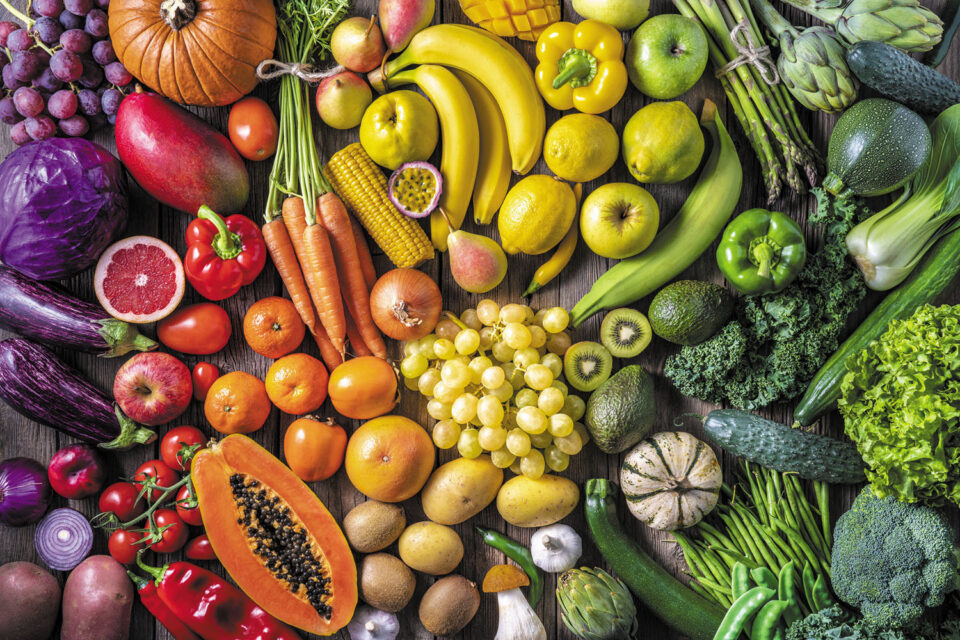It may, in some quarters, sound unbelievable, but it is a reality.
Despite the fact that the country is an agricultural economy, it spends E2 billion per annum importing scheduled products, including vegetables and fruits. They are mainly imported from South Africa. Bhekizwe Maziya, the Chief Executive Officer (CEO) of the National Agricultural Marketing Board (NAMBoard), said emaSwati should ask themselves why they are being fed by foreign countries. He said local farmers do not grow crops at large scale, hence the shortage of vital vegetables and fruits. Maziya explained to the Times SUNDAY that some commodities like grain (wheat) also come from other countries, including China.
The situation appears and warranting urgent attention as emaSwati are importing even vegetables considered as part of their staple food, such as cabbage, beans, sweet potato, spinach, green maize, peanuts, lettuce and pumpkin. The NAMBoard said there is a very strong need to encourage farmers to undertake agricultural projects at large-scale necessary to satisfy the market and also provide means to commercialise farming.
Imported
The CEO said other scheduled products imported by the country include asparugus, baby corn, baby gem, baby marrow, brinjol, broccoli, brussel sprouts, butternut, carrot, cassava, cauliflower, celery, chick peas, chillies, coriander and cucumber. They also include dried leguminous vegetables, garlic, gem squash, ginger, green beans, green maize, green pepper, kale, leaf salad and leeks. Also forming part of the scheduled products are mint, mixed peppers, mushroom, okra, parsley, patty pans, processed vegetables, radish, red cabbage, red pepper, seed potato, soya bean, spinach, spring onion, sweet corn, sweet pepper and yellow pepper.
EmaSwati also import a variety of scheduled products that include fruits like almond, apples, appricot, avocado, banana, blackberry, blueberries, cashew nuts, cherries and coconut.
Other fruits that are imported to the country are cranberry, dates, dried fruits, gooseberry, granadilla, grapefruit, grapes, hazelnuts, kiwi fruit, lemon, lime and litches.
Classified
They also import mangoes, musk melon, naartjies, nectarines, nuts, olives, oranges and those classified by NAMBoard as other fruit and other nuts. The country brings to the local market from outside fruits such as pawpaw, peaches, pears, pecan nuts, pineapples, pinenuts, plums, processed fruits, prunes, raspberries, strawberry, sweet melon, walnut and watermelon.
Production
Asked what challenges emaSwati faced in producing the above listed crops, the NAMBoard CEO said challenges hindering local production include climate variability wherein the unpredictable weather patterns affect crop yields. Maziya, the CEO, said emaSwati have limited access to resources such as quality seeds, fertilisers and modern farming equipment.
He said water scarcity also affects farmers as there is inadequate irrigational infrastructure and a lack of economies of scale also plays a part in thwarting the commercialisation of farming.
Benefit
Explaining economies of scale, the chief executive officer said most of the country’s farmers are small-scale holders and do not benefit from economies of scale. Maziya said another challenge is that some of the farmers are not commercial but subsistence farmers who only sell their excess produce. Based on the current situation, what ought to be done to attain food security? This is one of the questions the CEO was called upon to answer.Maziya said the country is, of late, pushing for food sovereignty by putting in place initiatives such as launching water harvesting for irrigation, which is being achieved through construction of small and large dams, increasing access to funding, i.e. the Horticulture Revolving Fund and Horticulture Input Subsidy.
Improving
He said they are also promoting the climate smart agriculture programme and improving market information for proper planning and market facilitation. Another significant initiative that they have put in place is the programme to commercialise farming to improve profitability and revenue generation. Farmers are urged to focus on niche products and produce commodities only on suitable areas. Pertaining to vast arable land, of which some farmers feel there is an acute shortage contributing to the food imports; Maziya said Eswatini ‘does have sufficient land for agriculture’. He said the challenge lied more in efficient utilisation and management of this land.
Sustainable
The ceo said enhancing land use practices and adopting sustainable farming methods could help maximise the productivity of the available land. He said the country still have farmers sitting with large tracks of land but utilise only a small portion of that land. The NAMBoard is under the Ministry of Agriculture. It was established in terms of Act No. 13 of 1985.
It is mandated with the following:
- To assist farmers with production, processing, storage, transportation, and sale of scheduled products.
- To facilitate access to local and international markets for locally produced scheduled products.
- To register wholesale distributors, importers and exporters of scheduled products.
- To advise government on the availability and demand of scheduled products.
NAMBoard has three operational functions, which are the Farmers Support and Development Unit, Encabeni Fresh Produce Market and the Regulatory Division.
Commercial
It is understood that these functions are mandated to develop sustainable farming business among smallholder and commercial farmers in the Kingdom of Eswatini, as well as to ensure provision of food, economic security in communities and a well governed import, export and transitioning system of agricultural produce.


